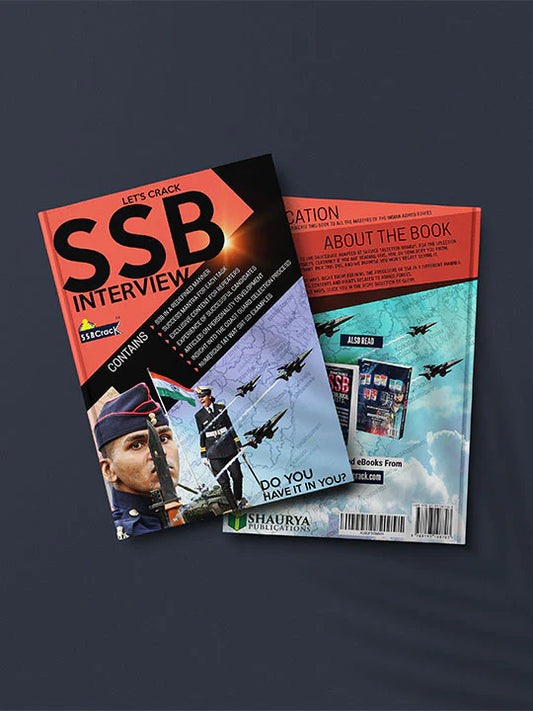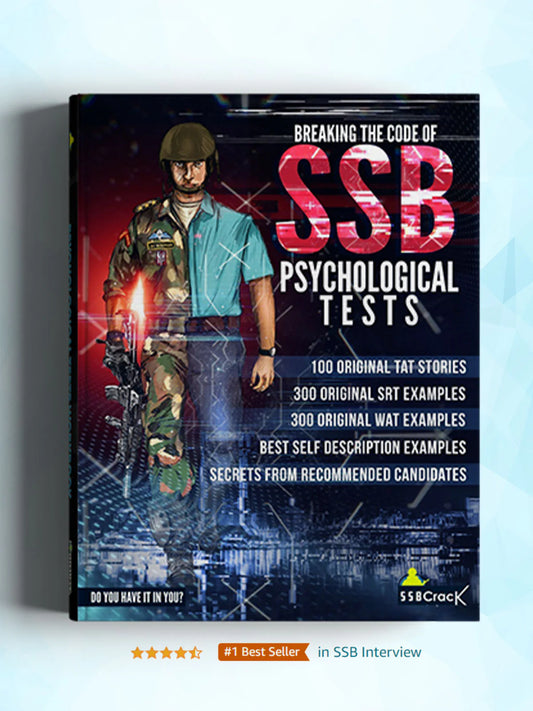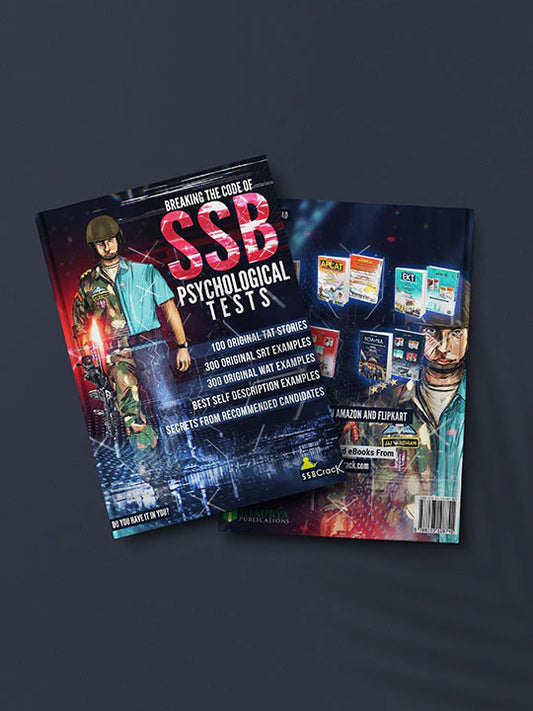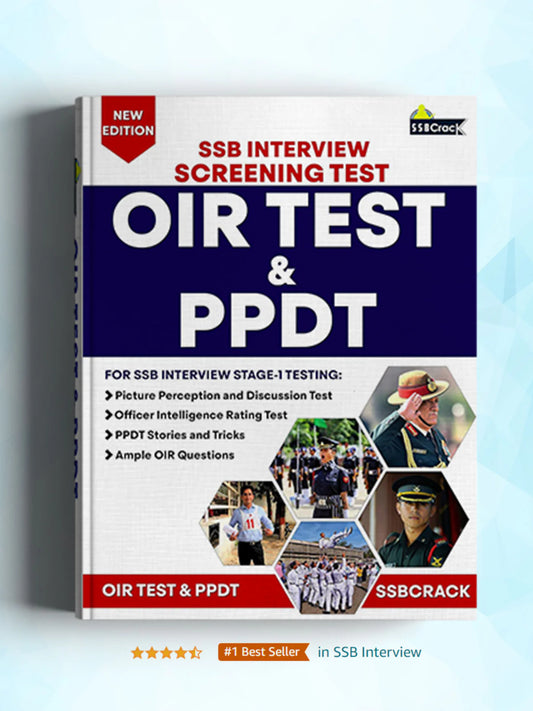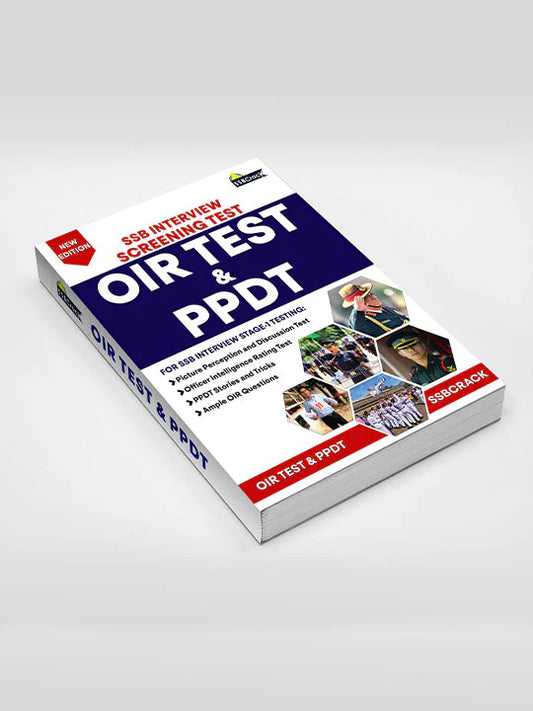How to Develop Officer-Like Qualities (OLQs) for SSB Interview Success
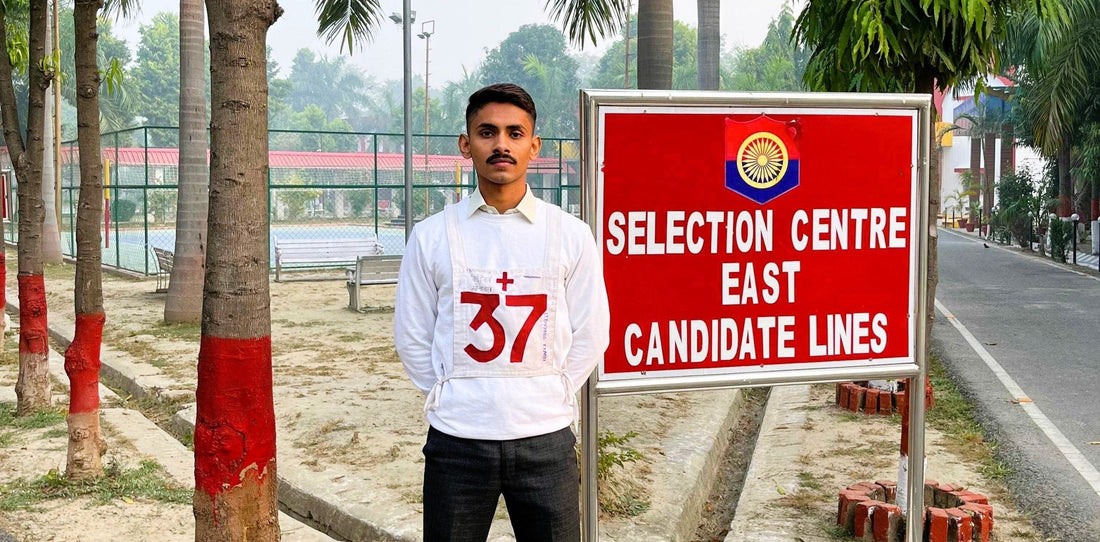
Introduction
The Service Selection Board (SSB) interview is a rigorous selection process, vital for anyone aspiring to join the Indian Armed Forces. It assesses a candidate's potential on multiple fronts, ranging from academic prowess to psychological stability. Central to the SSB evaluation are the Officer-Like Qualities (OLQs)—traits that define a successful officer. These qualities encompass leadership abilities, resilience, adaptability, and integrity, among others. Excelling in an SSB interview is not just about meeting the eligibility criteria; it is about embodying these essential qualities that reflect one’s aptitude for service.
In this article, we will delve into the significance of OLQs, explore their historical context, analyze their components in depth, and discuss practical strategies for aspiring candidates to develop these traits. With insights from experts, relevant statistics, and real-world examples, this guide aims to equip candidates with the knowledge they need to succeed in the SSB interview process.
SSB Interview Books Power Pack: 4 Must Read Books for Defence Aspirants
Rs. 1,760.00
Sale price
Rs. 1,399.00
Let's Crack SSB Interview Book [Paperback]
Rs. 390.00
Sale price
Rs. 360.00
Breaking The Code of SSB Psychological Tests Book - SSB Interview (TAT/WAT/SRT/SD)
Rs. 390.00
Sale price
Rs. 360.00
OIR Test & PPDT Book - SSB Interview Screening Test - Stage 1 Testing
Rs. 490.00
Sale price
Rs. 375.00
The evolution of the SSB interview process is intricately tied to the changing dynamics of warfare and leadership. Following Independence, the Indian Defence Forces recognized the need for a systematic selection process that could identify individuals with the right temperament and capabilities for armed service.
Initially modeled on British practices, the SSB gradually evolved into a unique system tailored to Indian contexts. Over the decades, the focus has shifted from merely assessing knowledge and physical fitness to evaluating a candidate's character, values, and psychological resilience. This transition reflects a broader understanding that modern warfare requires not just bravery but also strategic thinking, emotional intelligence, and teamwork.
Understanding Officer-Like Qualities (OLQs)
Key Components of OLQs
Understanding OLQs means comprehensively grasping their scope. Here are the primary qualities that the SSB seeks:
- Effective Communication Skills: The ability to express thoughts clearly and persuasively.
- Leadership and Teamwork: Leading without ulterior motives and fostering collaboration.
- Intellectual Capability: Demonstrating problem-solving skills and adaptability.
- Decision-Making Ability: Making informed and timely decisions under pressure.
- Self-confidence: Maintaining composure and assurance in one's capabilities.
- Empathy and Compassion: Understanding and valuing others’ perspectives.
- Integrity: Upholding strong ethical principles, even in challenging scenarios.
Developing Key Qualities
1. Effective Communication Skills
Why It Matters: Communication is the backbone of leadership in the Defence Forces.
Practical Steps:
- Engagement: Attend public speaking workshops or join organizations like Toastmasters.
- Practice Active Listening: Engage in conversations with an open mind, summarizing what the other person says before responding.
Example: Many successful officers highlight their public speaking practice as a turning point in their communication ability. Becoming a better listener can help candidates utilize feedback, improving their communication extensively.
2. Leadership and Teamwork
Why It Matters: Officers often lead teams in critical situations.
Practical Steps:
- Volunteer for Leadership Roles: Whether in a college club or a community project, seek opportunities to lead.
- Collaborative Projects: Engage in activities that require collaborative efforts, such as group sports or team challenges.
Expert Opinion: Leadership expert Kenneth Blanchard emphasizes that effective leaders develop through experiences that challenge them to think critically and support a cohesive team.
3. Decision-Making Ability
Why It Matters: The ability to make sound decisions is crucial, especially in crisis situations.
Practical Steps:
- Simulation Exercises: Participate in workshops that involve scenario-based decision-making.
- Learn from Mistakes: Reflect on past decisions to understand what led to successful or unsuccessful outcomes.
Statistics: Research shows that individuals who practice decision-making in simulated environments often perform better in real-life situations, especially under stress.
4. Self-Confidence
Why It Matters: Confidence affects how officers lead and influence their teams.
Practical Steps:
- Set Achievable Goals: Gradually build confidence through small successes.
- Positive Affirmations: Use daily affirmations to boost self-belief.
Case Study: Many candidates credit their success to gradual exposure to challenging situations that bolstered their self-confidence over time.
Importance of Emotional Intelligence
Emotional intelligence (EI) is a vital component of the broader OLQ framework. It encompasses self-awareness, self-regulation, motivation, empathy, and social skills, and it plays a pivotal role in leadership.
- In Practice: Officers with high emotional intelligence often excel in environments requiring teamwork and adaptability.
- Research Insights: A 2020 study published in the International Journal of Leadership Studies observed that leaders with high EI make more effective decisions that positively influence team morale and performance.
Case Studies: Real-World Applications of OLQs
Example 1: Lt. Gen. Harwant Singh
Lt. Gen. Harwant Singh’s trajectory illustrates the embodiment of OLQs. Known for his exemplary leadership during the Kargil War, Singh demonstrated remarkable decision-making skills. His strategic approach and communication abilities not only earned him respect within the ranks but also contributed significantly to operational success.
Example 2: Capt. Vikram Batra
Another case is that of Capt. Vikram Batra, whose leadership and self-confidence were crucial during the Kargil Conflict. His famous quote, “Yeh Dil Maange More!” exemplifies the fierce determination and bravery that officers must embody. His decisions, made under the most challenging circumstances, highlighted his remarkable capacity for teamwork and resilience.
Statistical Data and Research Insights
In preparing for the SSB, candidates should be aware of crucial statistics that underline the importance of OLQs:
- According to a survey conducted by the Indian Army's Training Command, effective communication is cited as a critical factor for over 75% of successful leadership outcomes.
- Research from the Indian Institute of Management indicates that candidates demonstrating high emotional intelligence score 30% higher in leadership evaluations than their peers.
These statistics stress the essential nature of developing OLQs to ensure a higher probability of success during the SSB interview.
Comparative Analysis of OLQs
Eyes on comparisons can clarify the depth of OLQs. Various perspectives exist regarding which qualities are most valuable in different contexts.
- Traditional vs. Contemporary Views: Older methodologies favored hard skills such as physical fitness and tactical knowledge. However, contemporary approaches increasingly emphasize soft skills like emotional intelligence and adaptability.
- Diversity of Thought: Scholarly debates highlight that fostering teams with diverse OLQ profiles can enhance decision-making and creativity.
This shift reflects a recognition that as the nature of warfare evolves, so too must the qualities that define effective leaders in the Indian Armed Forces.
Challenges and Solutions in Developing OLQs
Common Challenges
- Lack of Self-awareness: Many candidates underestimate their weaknesses, making it challenging to develop necessary qualities.
- Resistance to Change: Transitioning to an officer-like mindset requires a willingness to step out of comfort zones.
- Limited Opportunities for Practice: Access to platforms for genuine leadership experiences may be limited.
Proposed Solutions
- Self-Assessment Tools: Utilize psychological assessments like the 16PF or MBTI to understand personal traits and areas for growth.
- Mentorship Programs: Establishing connections with retired officers or current leaders can provide guidance and insights into the realities of leadership.
- Engagement in Community Services: Actively participating in community service can provide practical scenarios for developing OLQs while giving back to society.
Future Trends and Predictions
As the international landscape continuously evolves, the traits that define successful leaders will also shift. Emerging trends suggest:
- Technology Integration: As warfare technology advances, officers will need to develop technical expertise in addition to OLQs.
- Focus on Continuous Learning: The importance of lifelong learning and adaptability will remain central, with training programs integrating emerging fields such as cybersecurity and artificial intelligence.
- Increased Diversity: A broader definition of leadership may support diverse backgrounds and experiences, enhancing OLQ development across varied demographics.
Conclusion
The journey to develop Officer-Like Qualities is multifaceted and requires dedication, self-reflection, and consistent practice. The SSB interview is a gateway to serve the nation, and embodying these qualities is essential for aspiring candidates. By understanding and nurturing OLQs, candidates not only increase their chances of success during the SSB interview but also prepare themselves for the challenges of military life.
In conclusion, aspiring officers must actively cultivate their OLQs through practical experiences, continuous learning, and self-awareness. As they prepare for the interviews ahead, embracing the qualities that define effective leadership will serve them not just in their careers but also in their roles as responsible citizens. For tailored resources, consider exploring SSBCrack and SSBCrackExams’ extensive materials, including books, online courses, and eBooks designed to guide candidates through every step of their preparation. Embrace these qualities, and step confidently towards your destiny in the Indian Armed Forces.
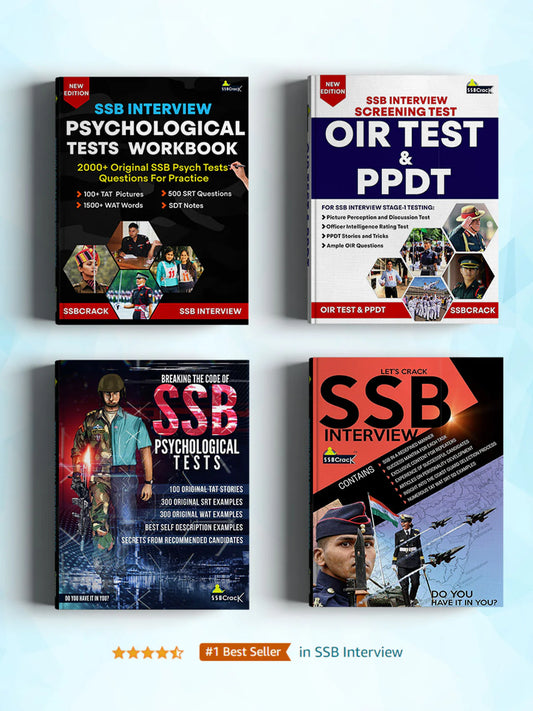
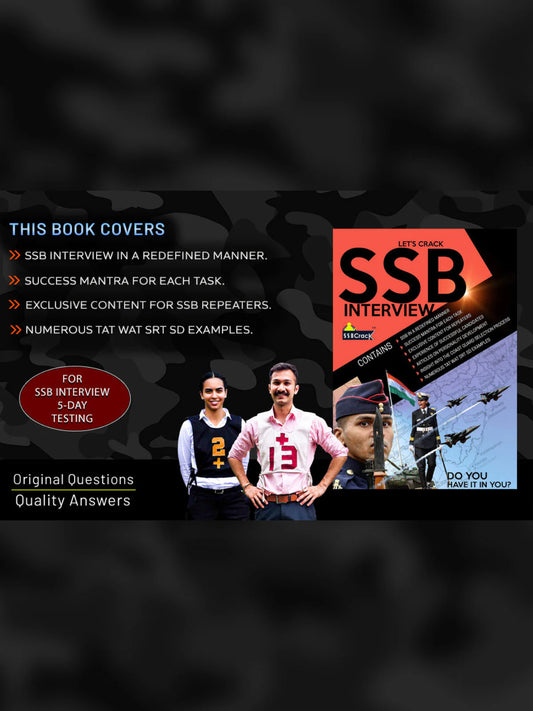
![Let's Crack SSB Interview Book [Paperback]](http://shop.ssbcrack.com/cdn/shop/files/ssb-books.webp?v=1736351621&width=533)
